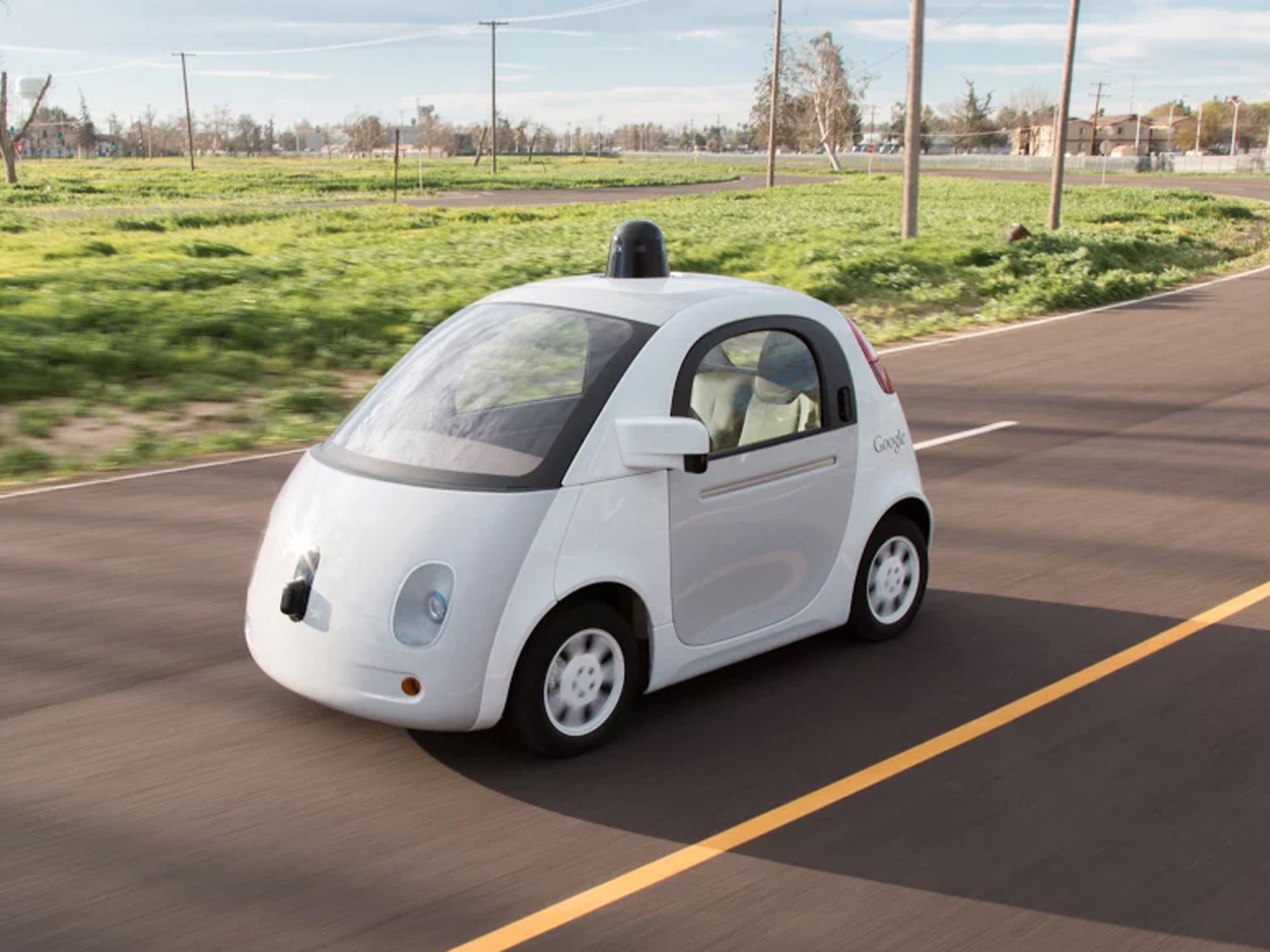Google self-driving cars to be tested on public roads in California this summer
Cars have already logged almost a million miles of testing, Google says

Google’s self-driving cars are headed for the road this summer — though they will initially have human beings ready to step in if they go wrong.
The cars are set to be tested on public roads in California, the first time that the cars have left Google’s own test tracks.
The cars have already undergone rigorous testing at its facilities, Google said. The company has been “ensuring our software and sensors work as they’re supposed to on this new vehicle” at a test track near Google’s headquarters at Mountain View, in California.
“Each prototype’s speed is capped at a neighborhood-friendly 25mph, and during this next phase of our project we’ll have safety drivers aboard with a removable steering wheel, accelerator pedal, and brake pedal that allow them to take over driving if needed,” said Chris Urmson, the director of Google’s self-driving car project, in a blog post announcing the testing.
“We’re looking forward to learning how the community perceives and interacts with the vehicles, and to uncovering challenges that are unique to a fully self-driving vehicle—e.g., where it should stop if it can’t stop at its exact destination due to construction or congestion.”
The company says that it hopes eventually to run small pilot programmes, letting people use the cars to see what they’d like to do with them.
The cars will be using the same software that Google’s existing fleet of self-driving Lexus cars uses. Those have driven for almost a million miles already and are now directing themselves for 10,000 miles of driving a week, Google said.
Last week, Google said that those cars had been in 11 minor crashes since they started public testing. But none of those crashes were solely caused by the cars themselves, Google said — and most of them happened as a result of human error.
Google hopes that the self-driving cars will be able to reduce the amount of crashes caused by human error, which it says could fall by 94 per cent, as well as speeding up traffic and letting those that can’t drive themselves get around.
Join our commenting forum
Join thought-provoking conversations, follow other Independent readers and see their replies
Comments
Bookmark popover
Removed from bookmarks